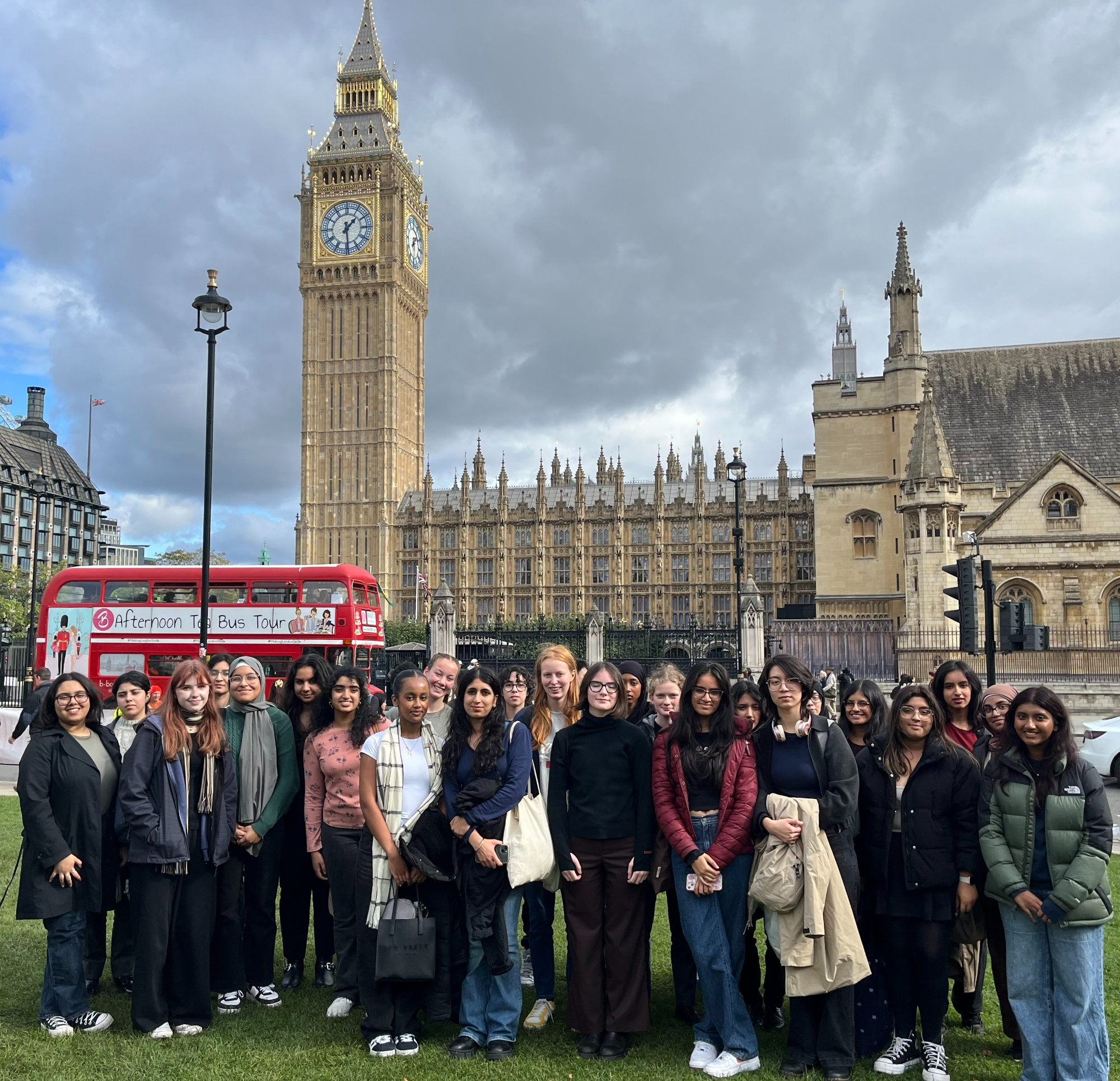Politics
Curriculum Intent & Rationale
The purpose of the politics curriculum is to provide all students with the knowledge of how the world of government, parliament, pressure groups and parties works, and also to understand the theoretical underpinnings for the day-to-day arguments over policy.
Politics is a vitally important subject for today’s young people. It equips students to understand the world around them and the process of political decision-making in a period of rapid social change. Much of the politics course is focused on contemporary events in both the UK and the wider world.
Learning politics in the Sixth Form requires students to develop some key transferable skills. Students are expected to keep up-to-date with current affairs and this enables frequent class discussions of the day’s news, which is used to illustrate the general aspects of the course. Classes also become familiar with the broad spectrum of contemporary political opinion. As a result they are better able to navigate their way through the growing maze of social media and ‘fake news’, as well as gain a better understanding of legitimate viewpoints that are opposed to their own.

Politics teaches students learn to write coherently at length, as well as how to express arguments verbally. Analysis and evaluation form an important part of written assessments, and students also gain a high level of abstract conceptual understanding as part of the course of study.
Implementing Our Curriculum
Key Stage 5
At A-level, students study the AQA Politics specification. Over the course of two years the course covers the major aspects of UK politics, US politics and various political ideologies. Students learn about the workings of the UK government, as well as the way in which politics shapes, and is shaped by, wider society. As part of a study of US politics, comparisons are made between politics in this country and on the other side of the Atlantic. The final unit of study enables students to gain an understanding of three core political ideologies – liberalism, socialism and conservatism – as well as a study of feminist thought.
Students of A level politics develop their critical thinking skills to a high level, in particular the ability to research independently and understand the conflicting views on contemporary political issues. The subject provides an insight into the workings of Britain’s political culture and institutions; valuable knowledge for any student going on to professional work in the future. Many A level politics students go on to study for politics or related degrees at university, for example International Relations or PPE (Politics, Philosophy and Economics).
Curriculum Maps

